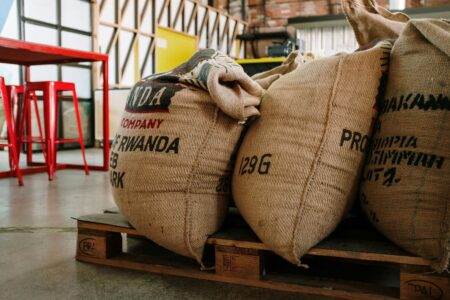British Coffee Association acts to ensure post Covid-19 recovery for manufacturers supplying foodservice and hospitality market

The British Coffee Association (BCA), alongside more than 20 organisations from across the ‘farm-to-fork’ supply chain, have warned that food and drink suppliers to the hospitality and food service sector risk being over-looked as the UK Government considers how to re-open the industry. The findings published in a new report, reveal that those businesses in the ‘squeezed middle’ have not been given the same level of government assistance as the businesses they supply, despite being as hard hit by the overnight closure of lockdown.
The report says that the level of support available to the ‘squeezed middle’ is currently poorly focused and will not deliver the recovery plan the UK Government is working towards. Maintaining Post-Covid-19 Capacity in Hospitality and Food Service Supply Chain Businesses – ‘The Squeezed Middle’ has been produced by the Food and Drink Federation-convened Food and Drink Industry Roundtable, with input from the BCA.
Paul Rooke, executive director of the BCA, said: “Our primary aim has been to ensure that those businesses who supply the food service and hospitality sectors, the real engine room of the food and drink sector, and who are fundamentally viable businesses, get the targeted support they need to be ready to support their customers as they restart their operations.”
In addition to publishing the findings from the new report, the BCA has co-signed a letter to Rt Hon George Eustice MP, secretary of state for Environment, Food and Rural Affairs to advocate for the new report’s findings to be considered by the government.
Maintaining business liquidity reportedly remains a huge concern for the ‘squeezed middle’. Research undertaken for the report shows that fewer than half of food and drink manufacturers have applied for Coronavirus Business Interruption Loan Scheme (CBILS) or Bounce Back Loan Scheme (BBLS) support. Concerns over incurring additional debt and associated interest payments were cited as the main reason. At the same time, many companies are facing up to 50% of their customer base delaying payment or not paying outstanding invoices.
While the UK Government’s furloughing scheme has been popular and effective amongst the ‘squeezed middle’, there are concerns about whether the hospitality and food service markets will have recovered to viable levels when the scheme ends in October.
The UK government’s decision to underwrite Trade Credit Insurance was widely welcomed across the food and drink industry. However, many businesses continue to report concerns that trade credit insurers are not adjusting their criteria to take into account the pandemic, making unrealistic demands on businesses and their debt management.
The Food and Drink Industry Roundtable report outlines a series of practical steps the government can introduce to ensure the ‘squeezed middle’ are able to play their role in a post-virus recovery:
- Businesses supplying into the hospitality and food service industries should continue to receive furlough support through the UK Government at a rate of 80% of salary contribution until those markets return to commercially viable levels.
- The UK Government should place a requirement on the trade credit insurance industry to develop best practice rules of operation which include greater transparency and formal notification of the reason(s) for refusal or withdrawal of cover.
- Insurers should be required to reinstate reduced or withdrawn cover back dated to 1 March 2020, except where there are clear and identifiable reasons as to why this would no longer be appropriate.
- Governments should provide more targeted support for the ‘squeezed middle’ that does not incur additional business debt e.g. a relaxation of current rules for Apprenticeship Levy funds to allow businesses to maintain existing employment.
- Governments should create schemes for small, medium and micro businesses within the ‘squeezed middle’ that provide initial cashflow injections to businesses requiring support to secure orders for materials and/or build stock in readiness for the recovery of customer demand.



